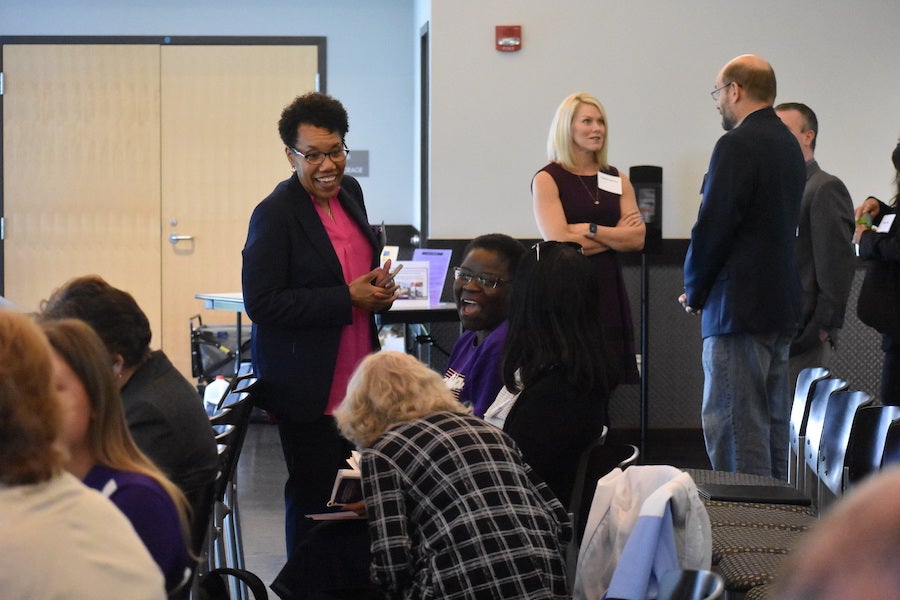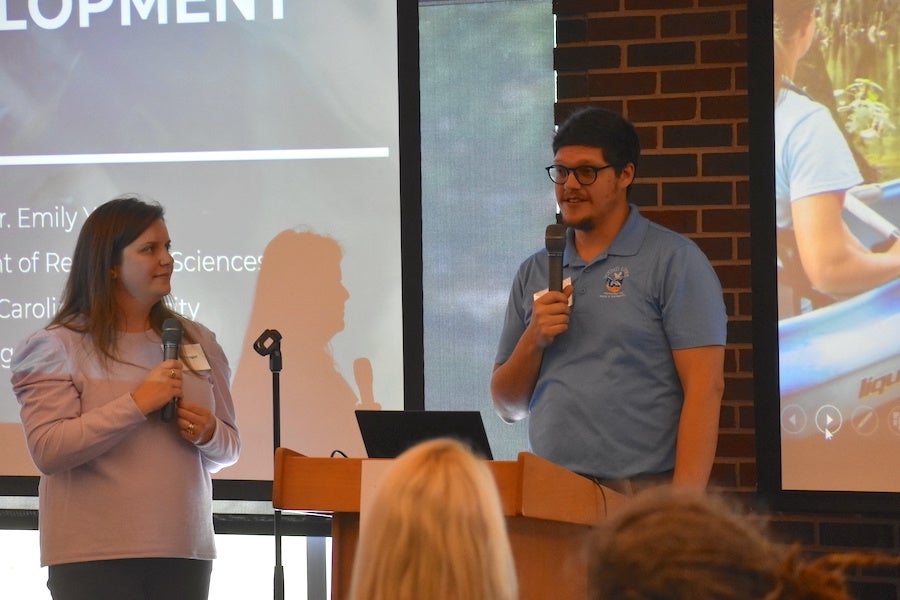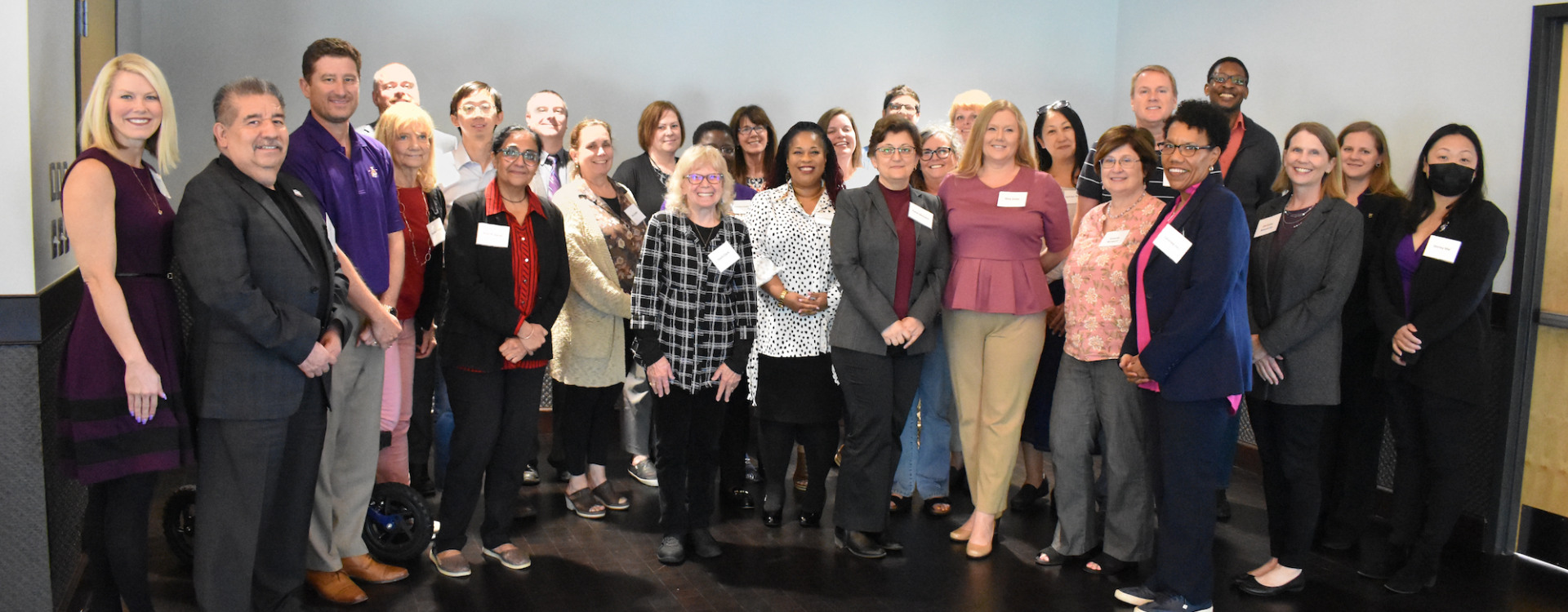EOSA Celebrates Over A Decade of Engaged Work
 Engagement and Outreach Scholars Academy (EOSA) participants from 2009 to present gathered on Friday, April 14, 2023 for the very first EOSA reunion. The event highlighted the work of some of EOSA’s graduates and offered time for new connections to be made.
Engagement and Outreach Scholars Academy (EOSA) participants from 2009 to present gathered on Friday, April 14, 2023 for the very first EOSA reunion. The event highlighted the work of some of EOSA’s graduates and offered time for new connections to be made.
ECU’s EOSA program provides professional development and project support for research that connects the university with communities throughout eastern North Carolina. Faculty selected to the program participate in cohort-based workshops and develop a research project with community partners.
Attendees heard presentations from the 2022-2023 EOSA scholars: Drs. Travis Lewis, Myshalae Euring, Carol Massara, Mitzi Pestaner, Aimee West Smith and the team of Linda Quick, Shirley Mai and Linda Kowalczyk.
Several former EOSA members who have continued their community engaged scholarship to great success also presented on their work. These EOSA alumni were featured as keynote speakers at the reunion and included Drs. Leigh Atherton, Priti Desai, Wanda Wright, and Emily Yeager. Yeager and Desai were joined by their community partners Clay Barber of Sound Rivers and Jacque Sauls of Rainbow Services and Child Life for ECU Pediatric Hematology and Oncology, respectively.

Dr. Angela Lamson, interim assistant vice chancellor of economic and community engagement, said, “Our vision [for the reunion] was to bring together engaged scholars and community partners who have collectively influenced regional transformation over the past 15 years. EOSA scholars, SEOSA undergraduates, and graduate student research assistants have represented every college at ECU and community partners have stretched all across eastern NC. The EOSA reunion offered a way to celebrate our mutually beneficial relationships.”
Dr. Yolanda Holt, director of engaged research, said she heard from many participants how EOSA changed their perspectives on engaged research.
“The primary theme [of the feedback from EOSA participants] was learning to understand and tackle common problems with the community,” said Holt.
“Community and faculty participants talked about how they had engaged in the exchange of knowledge and skills that strengthened their partnership,” she said.
Holt added that additional takeaways included the faculty members using what they had learned to inform their teaching as well as having pilot data and training to apply for grant funds.
Currently guiding ECU through the re-classification process for the Carnegie Foundation Elective Classification for Community Engagement, Lamson notes, “EOSA is just one example of ECU’s commitment to community engaged scholarship.”
To learn more about EOSA or engaged research at ECU, visit rede.ecu.edu/engagement.
